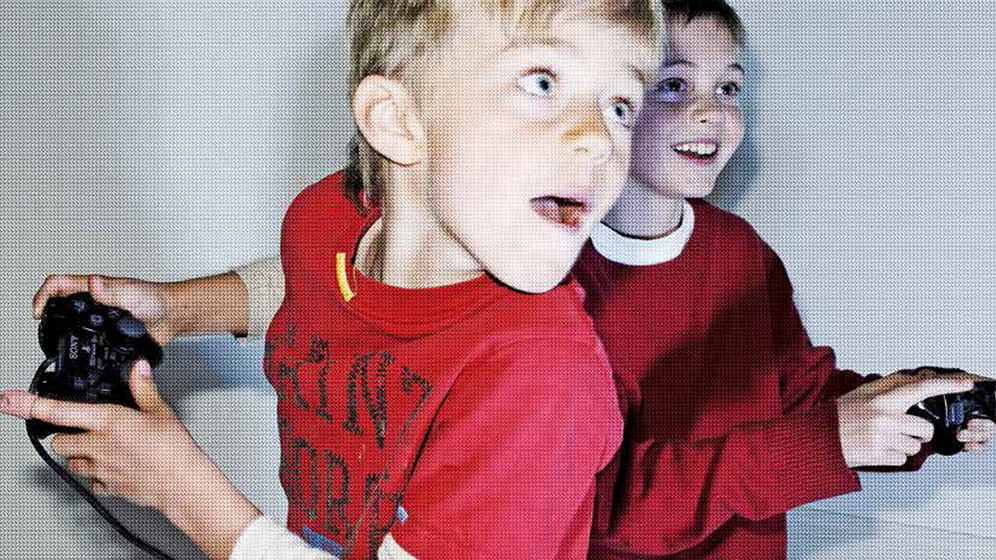Media literacy needs parents and teachers
Media courses help young people to obtain targeted information about new media and sensitize them to dangers. This is shown in the new Jamesfocus report by ZHAW and Swisscom.

However, the private environment is just as important for the development of media literacy. The ZHAW researchers therefore recommend media courses at school or in leisure time as a supplement to parental media education.
When it comes to teaching media literacy - the ability to handle media responsibly and critically - family and friends play a key role alongside teachers. This is shown by the current Jamesfocus report from the ZHAW. The report is based on the JAMES study, which examines the media behavior of Swiss young people aged 12 to 19 every two years. ZHAW media psychologists Daniel Süss and Gregor Waller and their team investigated how useful media courses are for Swiss young people, what sources they use to obtain information and whether media courses help them to deal responsibly with digital media. According to the current report, 22 percent of young people in German-speaking Switzerland have attended a media course at school. In French-speaking Switzerland and Ticino, courses on media skills are attended significantly more often, at 33 percent each. "We suspect that the differences are due to the fact that the implementation of the new Curriculum 21, which anchors media education in the classroom, had not yet begun in German-speaking Switzerland at the time of the survey," says Daniel Süss.
Michael In Albon, Youth Media Protection Officer at Swisscom, agrees: "Although a lot is being done in some schools on the subject of media competence, there is no comprehensive approach. Many school ICT concepts talk a lot about devices, servers and networks. However, the aspect of media competence is often missing. Albon therefore recommends that schools address media use in a more holistic way and also involve parents.
Media education in the family plays a big role
Overall, the young people find media courses helpful. 50 percent of them say they have benefited from the courses. Two-thirds of the young people surveyed also obtain information about new media in their private environment. When discussions took place with parents or peers, as many as 69 percent of the young people rated the information they received as helpful. For them, the main focus is on topics such as the dangers of new media, careful handling and protection of personal data, and user skills. Daniel Süss explains the difference as follows: "The private environment and especially the social and media competence of parents can help young people to classify information from the digital world into a broader world knowledge. Parents and peers are therefore important contacts in everyday life."
More awareness for digital visibility
The topic of privacy aspects has a particularly positive effect in media courses: The results of the study show that young people who have taken part in media courses are more often aware of privacy risks. Up to 60 percent of them regularly update their privacy settings. "Those who have taken part in a course are more concerned about the visibility of their digital information," says Daniel Suess. "So the media courses sensitize young people to this important topic."
Tips for schools and parents
Parents are important mediators of media competence. They can support their children with regard to media through their experiences in the areas of enjoyment skills, critical faculties or social skills. Media courses can be a useful supplement and deepen user knowledge. However, courses alone cannot take over or replace the long-term support and media education provided by parents.
Media courses in school make sense. However, the integration of media topics in other school subjects is also desirable. This is envisaged in the form of application skills in the "Lehrplan 21" for German-speaking Switzerland.
Learning by doing. When young people are actively involved in media projects, such as filming a lesson topic or creating an online school newspaper, media competence is strengthened more sustainably and meaningfully than through the mere transmission of information. Media courses should therefore include not only information but also concrete recommendations for action.
Parents and other interested parties can find information on media use by children and young people and helpful tips on media education in the brochure "Media Literacy - Tips for Safe Use of Digital Media". Teachers and school administrators will find practical tips on teaching media literacy in the classroom in the brochure "Medienkompetenz im Schulalltag" (Media literacy in everyday school life). Download and/or order free of charge at Youthandmedia.ch.
James study and Jamesfocus report
Since 2010, more than 1,000 young people aged 12 to 19 in the three major language regions of Switzerland have been surveyed about their media behavior every two years in the James Study by the ZHAW Zurich University of Applied Sciences on behalf of Swisscom. The Jamesfocus series uses the data from the James study and analyzes different aspects in greater depth. This year, the reports "Media use and sleep quality" and "Media courses and media literacy" were published in the Jamesfocus series. The results of the next James study are expected in early November 2016.
Image: Cover of brochure "Media literacy - tips for safe use of digital media".








